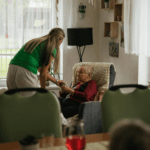For families moving to Canada through the Rural Community Immigration Pilot (RCIP), one of the biggest concerns is the quality and availability of education in smaller towns. The good news? Rural Canada offers excellent, safe, and inclusive schooling options—often with smaller class sizes and more personalized attention for your child.
In this post, we’ll walk you through what to expect when it comes to schooling options for your children as you prepare to settle in a rural Canadian community.
🎒 1. Overview of Canada’s Education System
Canada’s public education system is managed at the provincial and territorial level, but overall, it’s known globally for high standards. Education is free and mandatory for children up to the age of 16 or 18, depending on the province.
School Levels:
- Elementary/Primary School: Kindergarten to Grade 6 or 8
- Middle School (if applicable): Grades 6 to 8
- High School (Secondary): Grades 9 to 12
- Post-secondary: Colleges, universities, and trade schools (not free)
✅ Most rural schools follow the same curriculum as urban schools, but with more community involvement and smaller student populations.
🏫 2. Schooling in Rural Communities
One of the advantages of rural life is smaller schools. This means:
- Lower student-to-teacher ratios
- Greater one-on-one support
- Close-knit relationships between teachers, students, and parents
- Strong community participation in school events and activities
Many rural schools also offer:
- English or French immersion programs
- Support for English Language Learners (ELL)
- After-school sports and arts programs
- Access to mental health and social support services
🌐 3. Language Support for Newcomer Children
If your children are still learning English or French, don’t worry—public schools offer ESL (English as a Second Language) or FSL (French as a Second Language) programs. Trained teachers help newcomer children integrate into regular classrooms while improving their language skills.
Some supports include:
- Settlement Workers in Schools (SWIS)
- Cultural orientation programs
- Peer mentorship
These services are beneficial in smaller communities, where support tends to be more personal and consistent.
🧑🏫 4. Registering Your Child for School
Once you arrive in Canada under RCIP, you’ll need to register your children for school. Here’s what you’ll need:
Required Documents:
- Proof of residency (temporary housing lease or address)
- Child’s passport and immigration documents
- Vaccination/medical records
- Previous report cards or school transcripts (if available)
📝 Registration is typically done at the local school board office or directly at the school. Some communities even offer pre-arrival registration assistance.
📍 5. Transportation & Accessibility
In rural areas, school buses are frequently used for transporting students. Your local school board will help you:
- Find out if your address qualifies for school bus pickup
- Learn about bus routes and safety policies
- Arrange transportation for kindergarten-aged children if needed
🎓 6. Post-Secondary Pathways
If your children are in high school, rest assured that rural students have access to college and university guidance just as their urban counterparts do. Many schools offer:
- Career counseling and transition support
- Co-op or apprenticeship programs
- Scholarships and financial aid awareness
Some rural regions even have satellite campuses or partnerships with larger post-secondary institutions.
🧡 7. The Benefits of Rural Schooling for Families
Settling in rural Canada can offer your children:
- A safe and supportive learning environment
- More individualized instruction
- Opportunities to build deep social connections
- Exposure to Canadian nature, culture, and values
For families coming through the RCIP, this often leads to a smoother transition and a more balanced lifestyle for everyone involved.
📢 Final Thoughts
Moving to a rural Canadian community through RCIP doesn’t mean sacrificing your child’s education—it means gaining a close-knit, supportive environment where your child can thrive both academically and personally.
At Change of Phase Consulting Group, we support not only your immigration journey but also your successful settlement as a family. If you have questions about schools in your destination community or need help with pre-arrival preparation, we’re here to help.
🧭 Ready to plan your family’s transition?
📞 Contact us today to speak with an RCIP expert and receive personalized settlement guidance for your move to rural Canada.










Leave A Comment